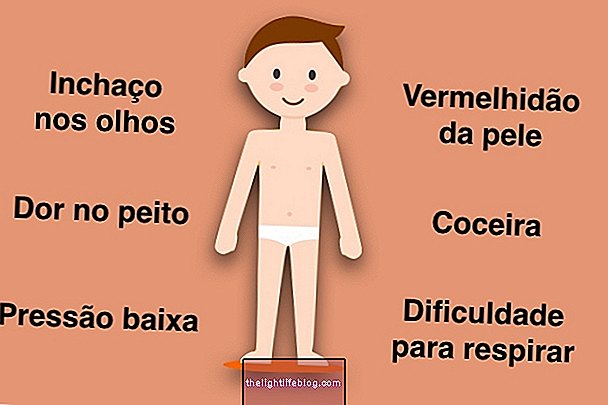Chronic insomnia occurs when the individual has symptoms such as difficulty getting to sleep or continuing to sleep, frequently and for a long time.
Its causes can be very varied and its treatment can be done through good habits before bed and sometimes with the taking of medicines indicated by the doctor, but this must always be the last option to not create dependency.
Treatment for chronic insomnia
Although there is no single treatment that is effective in fighting chronic insomnia, following all of the options below may be enough to get you to sleep faster and keep you deep sleep.

1. Adopt good sleep habits
To adopt creating sleep habits is advised:
- Lie down and get up at the same time every day, even on weekends;
- Perform activities that relieve stress a few hours before bed, such as running;
- Make light meals from 6 pm on, not eating stimulant foods like coffee or green tea;
- Turn off all electronic devices such as TV, computer, cell phone, clocks or alarm clocks before bedtime;
Also, it is important to prepare the bedroom to sleep, choosing a good mattress that does not cause pain in the neck or back and wear comfortable pajamas. Here's how to prepare a good night in: How to Plan a Good Night's Sleep.
2. Avoid stress
As one of the most common causes of insomnia is stress, it is advised to adopt measures that help to combat stress such as:
- Avoid places and situations that cause anxiety;
- To carry out leisure activities and to enjoy every day;
- Perform physical exercises every day to relieve tension;
- Do relaxation exercises, such as feeling your own breath
In addition, it is crucial to get off work and worries before going to bed, trying not to think about anything.
3. Taking Insomnia Remedies
When natural recommendations are insufficient to cure insomnia, the physician should be consulted so that the cause of insomnia is discovered and the disease can be treated properly.
Initially, natural remedies for insomnia made with herbal medicines such as chamomile tea, lemon balm, linden and cloves of India should be used, for they have sedative and relaxing properties. Learn how to prepare this tea in: Tea for Insomnia.
When this treatment is not enough, the doctor may prescribe the intake of insomnia medicines such as Zolpidem, Diazepam, Lorazepam, Trazodone and Mirtazapine.
These medications can be used in low doses daily for a period of approximately 6 months, and then the doctor can start "weaning", gradually decreasing the dose of the medicine so that there is no rebound effect and the individual will again suffer from insomnia after the treatment. However, the doctor may decide to use other medications or indicate them for a longer or shorter period, depending on the need that the individual presents.
4. Therapy
When chronic insomnia is caused by psychological disorders such as generalized anxiety or mood disorders, sessions of psychoanalysis may be useful to treat the cause of the disease, not just the symptoms. The sessions should be held once a week and does not rule out the need for medication.

























